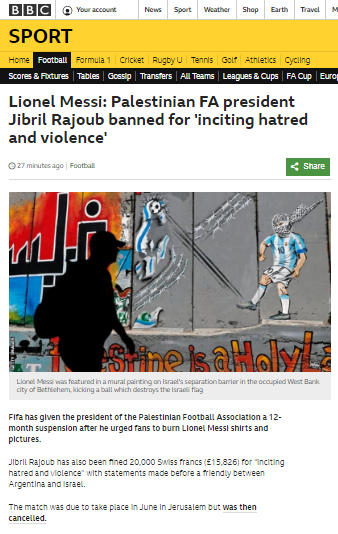1) Writing at Newsweek, David Daoud discusses the new Lebanese presidency.
“…the day after Aoun took office, his Free Patriotic Movement (FPM) stressed that Hezbollah’s chief Hassan Nasrallah is their “partner in victory.” The Party of God virtually imposed Aoun as the country’s next leader by boycotting elections unless Aoun ran unopposed and was guaranteed victory. For two years, Hezbollah held Lebanon’s politics hostage until Hariri, its chief political opponent, caved and endorsed Aoun on October 20, ushering him into the presidency.
Lebanon’s National Pact, the multi-confessional country’s unwritten power-sharing agreement, requires the president to be a Maronite Christian, with a Sunni prime minister, and Shiite speaker of parliament. The 1989 Taif Accords —which ended Lebanon’s civil war— limited the president ’s traditional constitutional powers, but Aoun will still have the capability to continue Lebanon’s national and foreign policy tilt toward Hezbollah. In fact, he has already done much to empower the Shiite group.
In 2006, Aoun signed a Memorandum of Understanding which cemented his party’s alliance with Hezbollah, granting it outside political influence. In it, he recognized the group’s right to retain its arms, in defiance of United Nations Security Council Resolutions 1559 and 1701.”
2) Senior Law Lecturer Lesley Klaff explains “Why all Labour members need to read parliament’s antisemitism report“.
“The committee has clearly grasped something that eluded Chakrabarti. It has realised that in order to investigate allegations of antisemitism, you first need to define what you mean by the term.
The Chakrabarti report refused to provide a definition of antisemitism. It even said there was “no need to pursue an age-old and ultimately fruitless debate about the precise parameters of race hate”. This is incredibly short sighted.”
3) As reported by the Times of Israel and other outlets (not including the BBC), the IDF’s emergency field hospital unit recently gained unprecedented recognition form the World Health Organisation.
“The United Nation’s World Health Organization recognized the Israeli army’s field hospital, which is regularly sent abroad to provide aid at natural disaster sites, as “the number one in the world” in a ceremony last week, classifying it as its first and only “Type 3” field hospital, according to its commander, Lt. Col. (res.) Dr. Ofer Merin. […]
In 2013, the United Nation’s WHO created a set of criteria to classify foreign medical teams in sudden onset disasters, on a scale from one to three. Israel is now the only country to receive the top mark. […]
Israeli disaster relief delegations — some of them led by Merin — have been some of the first and largest to arrive at the scenes of natural disasters. Teams from the IDF Medical Corps and Home Front Command provided rescue and medical services after an earthquake in Turkey in 1999, an earthquake in Haiti in 2010, a typhoon in the Philippines in 2013 and, most recently, an earthquake in Nepal in 2015.
This Type 3 classification ensures that Israeli teams will continue to be the first allowed on the scene of future disasters…”



